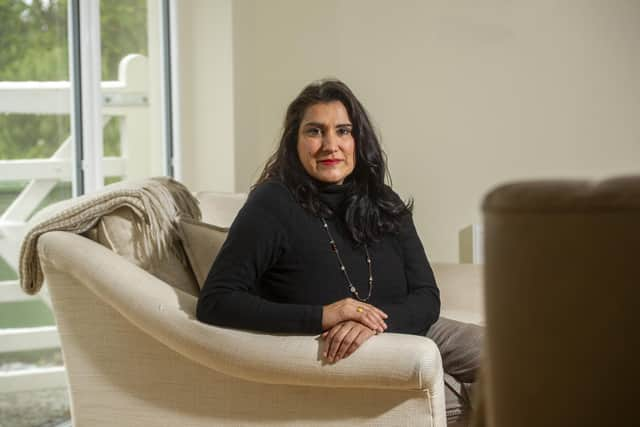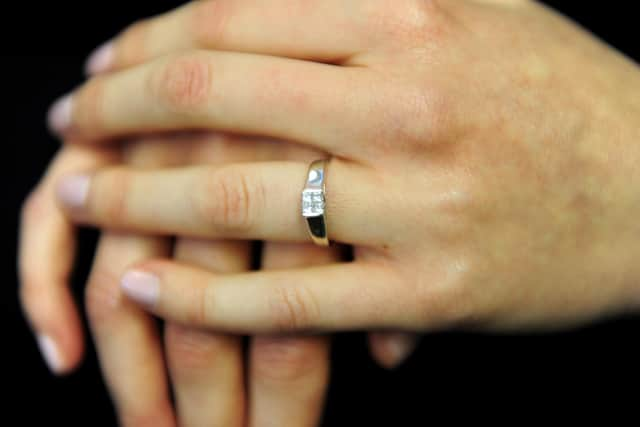‘My family has disowned me for 43 years as I didn’t marry a stranger’: Founder of Leeds Karma Nirvana charity shares child marriage survivor’s story
As she stared at the picture of the older man - a man who she had never met - Jasvinder learnt that she had been promised to him since she was just eight-years-old. She was told that in a few months’ time, she would be taken away from Derby where she had lived her whole life, and flown to India, where the wedding would take place.
It felt like a nightmare, but Jasvinder had known this day was coming for years as she had watched the same thing happen to her sisters. “None of them ever spoke of what happened in India,” Jasvinder told NationalWorld. “But they were different when they returned. They acted the part of the traditional wife, they wore Indian clothing, and none of them went back to school.” Instead, she explains, they were focused on immigration applications and becoming a sponsor, so that their new husbands could move to the UK.
Advertisement
Hide AdAdvertisement
Hide AdGrowing up, Jasvinder hadn’t really questioned this. “What you need to understand,” she explains, “is that we learn our rights and wrongs from our parents. So when, from the age of seven, you’re told, ‘as a girl, you don’t speak unless spoken to’, ‘as a girl, you don’t make eye contact with men’, and, ‘as a girl, we will find you a nice husband and you will marry him when we say’, you believe this is right. You believe it’s normal. It’s a form of grooming.


“You’re also taught that this is part of your culture, your religion, your country’s tradition,” she continues. “And so if you love your family, and don’t want to bring shame and dishonour upon them, this is what you will do.”
But when it became a reality for Jasvinder, she realised with every bone in her body that she did not want this - and told her mother so. “I don’t want to marry a stranger,” she said aloud. And with those words, Jasvinder’s world imploded. She was locked in her bedroom for weeks, told she would not be released until she agreed to marry. She was driven to desperation in there, and attempted to overdose.
Eventually, Jasvinder ‘agreed’ to the marriage. Her family were thrilled, but she was covertly plotting her get-out. Jasvinder had a secret boyfriend at the time, who had told her he would help her escape. The moment they got the chance, they did just that - fleeing to Newcastle. But Jasvinder was soon reported missing to the police, who eventually tracked her down.
Advertisement
Hide AdAdvertisement
Hide AdShe begged the officer not to send her home as she tried to explain the situation: “My parents are marrying me to a stranger. They’ll give you an award-winning performance on the doorstep of why they won’t, but the minute you’re gone, I’ll be in danger again.”


“He looked at me,” Jasvinder says, “and went: ‘don’t worry, I see this all the time.’ And I just felt this immense sense of relief that he believed me - that he didn’t dismiss what I was saying.”
She was told she didn’t have to return home, but had to call her family and tell them she was safe. “I rang home, and I said to my mum ‘I want to come home, I want to be with my family, but I don’t want to marry a stranger’.” Her mother refused, insisting she could only come home if she agreed to marriage. When Jasvinder said no, her mother said something she will never forget. “You are dead to this family.”
“That’s the choice,” Jasvinder explains. “You can have your family, but no freedom. Or you can have freedom, but no family. I chose freedom.” Jasvinder has now been “disowned” for 43 years, and in that time, has come to realise it was the right choice.
Advertisement
Hide AdAdvertisement
Hide AdIn 2008, she launched the Karma Nirvana charity to campaign against forced and child marriages, and bring an end to ‘honour-based abuse’. She was driven by what had happened to her older sister Robina, who was married at the age of 14.
Robina’s husband did not get granted residency in the UK, and so she joined him in India, but the marriage soon turned abusive. Her parents allowed her to return home and remarry, but the second husband was abusive too. Seeing no way out, she took her own life.
“When I called my mother, she told me it was better that Robina take her own life than dishonour her family,” Jasvinder says. “That’s when I had an epiphany. Nothing was ever going to change. I finally owned the fact that I was a victim, not a perpetrator. I hadn’t done anything wrong. I was a child.” And so Karma Nirvana was born.
Since the launch of the Leeds-based national charity, Karma Nirvana’s helpline has received more than 100,000 calls from victims. Over the years, the charity has helped campaign for the criminalisation of forced marriage, which came about in 2014, and for the change to the legal age of marriage in England and Wales, which rose to 18 in February this year.
Advertisement
Hide AdAdvertisement
Hide AdThe government said this will “better protect vulnerable children from the damaging impact of forced marriage”. Jasvinder agrees. She remarks: “This is a huge step because children growing up in these households are frequently told child marriage is normal, but now, there’s a clear sign that says it’s not. But what matters more is where we go from here, as it will take a full societal approach to properly protect victims.”
Jasvinder explains that raising awareness is incredibly important as “people need to know it’s wrong and against the law.” She recalls how, when her sisters were dropping out of education, “no one said anything” - but if someone had, she may have opened up to a teacher about what was going on.
“Schools are at the heart of prevention,” she insists. “But to do that, people need to understand the complexities. They need to understand that the perpetrators are parents. And they need to understand that saying this is wrong is not racism. It’s not disrespecting tradition. Cultural acceptance does not mean accepting the unacceptable. So this is where the work starts - we need to raise awareness, we need to protect children, and we also need to continue campaigning so that the law changes in Scotland too.”
You can read more about the work Karma Nirvana does on its website. If you need help, you can call the charity’s helpline for free on 0800 5999 247.
Advertisement
Hide AdAdvertisement
Hide AdIf this story has affected you, Samaritans are here – day or night, 365 days a year. You can call them for free on 116 123 or visit samaritans.org to find your nearest branch.